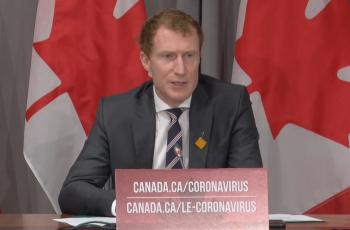Image Caption
Summary
Canada has announced $285 million in new funding that will support the “rapid and efficient public health response” in Indigenous communities in the event of outbreaks of COVID-19, said Indigenous Services Canada Minister Marc Miller.
“Overall, we’re in a position to increase the number of health care professionals in nursing centres by up to 40 per cent, if needed,” said the minister during a press conference today.
The funding will also support community-led initiatives in response to the pandemic, like providing additional cleaning supplies, medical equipment, and up to 160 temporary assessment, screening and isolation units that can be “rapidly deployed when needed”, and the adaptation of existing spaces to make them more appropriate for testing and treating the infection.
Miller said he understood everyone is concerned about a second wave.
“We must remain vigilant. The threat of a second wave is very real.”
The funding is available on a needs basis, said Miller. In case of outbreaks, this funding can be drawn upon to provide surge capacity and additional support for community-based services in First Nations, Inuit, and Métis communities, reads a press statement.
As well, the on-reserve Income Assistance program will see $270 million, with $139 million in direct response to the pandemic, and the remainder to sustain base funding. This will allow Nations to help members with essential needs—food, clothes, rent and utilities.
Program staff also provide referrals to mental health and addictions counselling, and help families find and apply for appropriate government benefits, such as Employment Insurance, the Canada Emergency Response Benefit, and the Canada Child Benefit.
In today’s announcement, Miller said Canada is committing $44.8 million over five years to build 10 women’s shelters in First Nations communities on reserve and two in the territories to help protect Indigenous women and children fleeing domestic violence. An additional $1 million a year ongoing will support engagement with Metis leaders and service providers on shelter provision and community-led violence prevention projects.
There is also a budget of $40 million for operational costs of the shelters for the first five years, and then 10.2 million annually ongoing.

